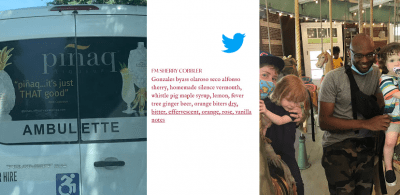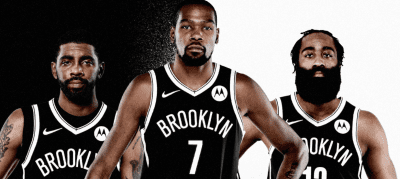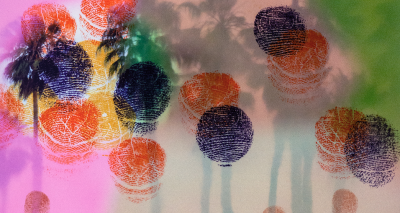Grace Gui swimwear (Courtesy Grace Gui)
4 local sustainable swimwear brands to check out before your next beach trip
From 3D printed fits to hand-knit beach wear, these local designers keep the environment top of mind
Now that we’re officially in the dog days of summer, I’m faced with a familiar dilemma: finding sustainable swimsuits that make me feel confident about myself and my purchasing power. In an ever-evolving fashion landscape — especially within a swim space that relies heavily on synthetic textiles — it can feel overwhelming to find ideal options.
Sustainable swimwear is still a growing category, but many designers have made strides within the category, providing eco-conscious pieces you can live in multiple summers long. Brooklyn Magazine sat down with four Brooklyn and New York City-based brands that employ sustainable practices in their design processes. Here, they share their creative approach and provide tips for how to maintain an eco-conscious lifestyle beyond the beach.
Nia Thomas
Nia Thomas grew up on Long Island where she was constantly inspired by the beauty of a long, hot summer day and informed early on of our impact on the natural environment.
“Growing up, my parents just taught me the basics of sustainability,” she says. “These basic concepts then transitioned into me being an adult and starting to shop more at thrift stores. As a fashion student, giving something a second life felt really cool.”
Thomas started her clothing line in 2018, which now brings the beach cityside. She collaborates with artisans in Mexico, New York and Peru to create pieces that are characterized by their luxurious feel, crafted from eco-conscious materials including recycled cellulose, cellulose-based fibers like cupro, Tencel and regenerative cotton.
“I just didn’t feel comfortable making something that I know wouldn’t biodegrade for years,” she says. “I didn’t feel comfortable going to the beach and seeing all of these plastic bottles and cups everywhere. I thought, ‘Why would I want to make my clothing out of that?’”
Grace Gui
Grace Gui didn’t always see herself as a designer. Coming of age in New Jersey, she became accustomed to farm life and raising livestock. Her grandmother even raised her own silkworms, which inspired Gui to weave that hands-on approach into her creative process many years later.
Just a few years ago, she was attending a traditional university and took up knitting as a hobby. Gui’s practice reflects her own upbringing by blending her Chinese heritage with Western culture. After getting a positive reception from sharing her work on social media, she decided to get serious.
Gui is influenced by the paintings her grandparents used to ink, which inform intricately beaded or hand-embroidered bikinis. Her process is unique in that transparency comes first: “I mostly source from female farmers in the Tri-State area and it’s so amazing to be able to be very transparent about where these pieces come from,” she says.
“Honestly, I just always enjoyed the aesthetics better of something that’s more natural-looking. It feels way more timeless and it feels super personal knowing that each piece is a community effort. I really love community building and bringing people together.”
Meridian Swimwear
“Meridian is for the days when you want the sun to stand still,” sister-founders Jordan and Terese Ostendorf LaGuardia emailed us. “The Latin term, meridies, means ‘midday’ or when the sun is at its highest peak in the sky. We’re always chasing the sun.”
When the two set out to create a swimwear brand, one of their first considerations was catering to cities like Brooklyn and beyond by making their pieces both versatile and functional. As a brand, they bring a taste of summer to the city streets, with jewel-toned suits made from recycled materials.
“We keep things personal and waste-free by making smaller collections tailored to what our customers want, rather than mass-producing standard designs,” they say. “This means less excess inventory and a smaller environmental footprint. Sustainability is at the forefront of our brand and is in the conversation every step of our process.”
Deta Knits
Deta’s knitted swimwear is an homage to founder Anna Berger’s great-aunt. But Berger pushes the boundaries of the traditional knitting routine, as her brand uses a 3D knitting process from its factory in Brooklyn, employing a knitting machine with four needle beds (as opposed to the more conventional two).
“With only a thread of yarn, you can knit any pattern you can think of — ribs, plaid patterns, origami-inspired patterns, and more. Anything is possible,” says Berger, who adopted 3D knitting to meet demand. “The machine knits the whole piece in one shot.”
Her made-to-order system results in a more ethical production process, minimizing waste, she says.
“My grand-aunt and grandparents lived through World War II,” she says. “They have experienced hardship and have taught me to be mindful of resources and to repair things rather than throw them away and buy anew. I like to work on a product and iterate until the fit is perfect rather than saturating the market with a new product every season.”
You might also like 


























